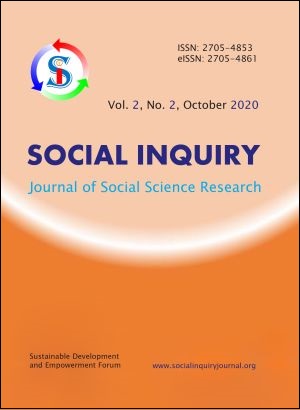Community Bonding for Developing Life-Affirming Skills of Children: A Qualitative Case Study of Tole Reading Group in Kaski, Nepal
DOI:
https://doi.org/10.3126/sijssr.v2i2.33045Keywords:
Community, Values, Networks, LearningAbstract
Based on a qualitative case study of a community reading group in a village of Kaski district, this paper explores how community bonding facilitates children's life-affirming skills. It argues that the networks based on communal values of reciprocal benefits are assets that promote sensitisation among themselves and the children’s learning. A local teacher and a School Management Committee member from the community facilitate as mediators for bridging school and the community meaningfully. It highlights that community members' informal and autonomous engagement in the collective reading and learning of children is more sustainable than the rigid, structured, and controlled mechanisms. Further, the paper claims that the school as an isolated institution with imported global values may not fit in a particular community. Thus, it is essential to respect and value the community bonding with contextual values to bridge the school and community and enhance meaningful reading and learning activities and quality education.




